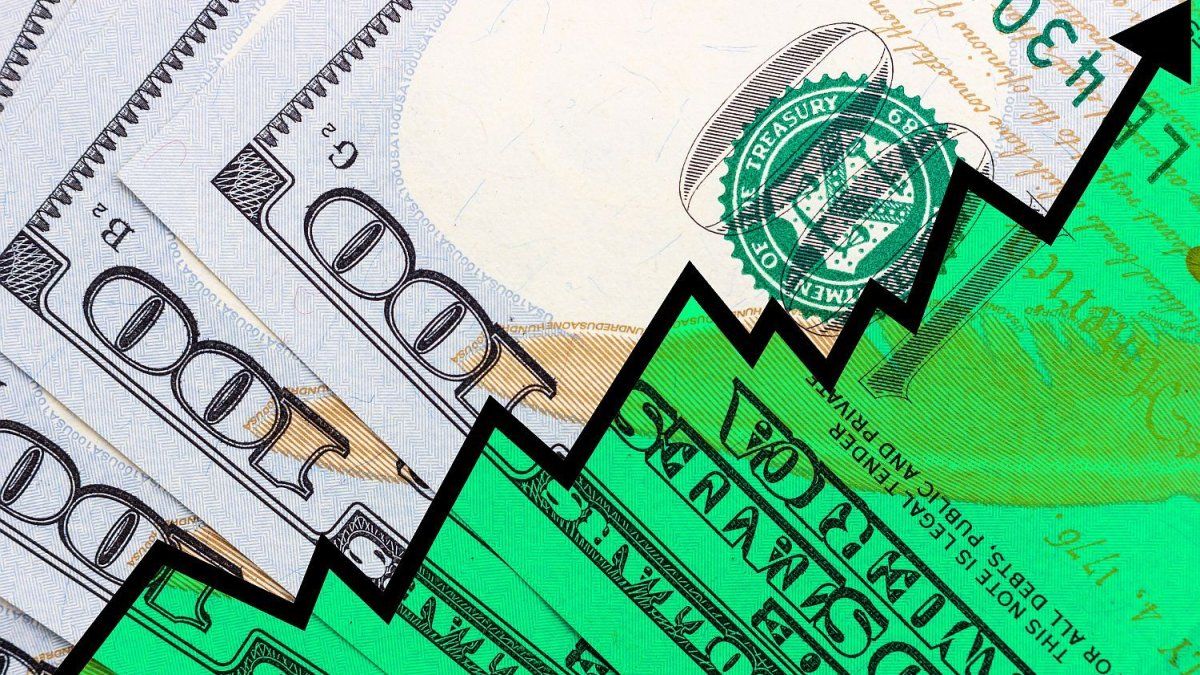He wage indexbetween private, public and unregistered, rose 5.7% in August and beat inflation again for the fifth consecutive month (4.2% in that month). However, salaries increased 200.6% in the year compared to a consumer price index (CPI) of 236.7% (yoy – yoy)that is, they exhibited a loss of 10.7% in terms of purchasing power, according to economist Pablo Ferrari.
So far this year, the average earnings have increased by 109.3% in the face of a price advance 94.8% in the same period, as reported by the National Institute of Statistics and Censuses (INDEC). That is to say, a real increase of 7.4%as specified Martín Vauthier, member of Luis Caputo’s economic team and director of BICE.
In the interannual variation, it was a consequence of the increases in 224.9% in the registered private sector, 166.6% in the public sector and 184.1% in the unregistered private sector. In this way, none of them beat the CPIwhich was located in 236.7% yoy.
The salaries that lost the most were undoubtedly those in the public sector, which exhibited a loss of 70.1 pp against inflation, while the unregistered private ones had drops of 52.6 pp in their monthly assets. The registered private companies, for their part, were the ones that lost the least, but they still did not manage to stop inflation and Their monthly income depreciated 11.8 pp
By August 2024, the Wage Index accumulates an increase of 109.3% compared to December of the previous year, due to increases in 116.1% in the registered private sector, 93.5% in the public sector and 116.1% in the unregistered private sector.
“If the real interannual variation of the partial accumulated wages is considered, a fall is seen in the case of the public sector (-23.6%), a fall in the registered private sector (-9.8%) and a fall in the non-public sector. registered (-32.7%). The latter is the one that has lost the most purchasing power for years,” says the economist. Nadin Argañaraz.
salary index.jpg
“Private salaries, in real terms, register a loss in purchasing power of 3.5% vs. Aug-23, and in the first nine months of Javier Milei’s management, the loss is 1.8%,” they noted. from Center for Political Economy (CEPA).
In the public sector, the loss of purchasing power is even greater: 20.8% compared to August 2023 and 16.5% compared to December 2023.
In the “non-recorded salary, the INDEC proposes a nominal increase of 10.6%. However, due to the close link it presents with the minimum vital and mobile wage (SMVM), a linear regression was carried out to project 5 months without information precise”, explains the CEPA and specifies that “The SMVM increased 3.2% in August, so unrecorded salaries, with the methodology used by CEPA, registered nominal increases of 3.22%“.
In that sense, he adds that the drop in purchasing power in that segment reached 27.8% compared to August 2023 and in the first nine months of this government, with this methodology, it already lost 20.5%.
Salaries and inflation: why there is no recovery in consumption despite the increase in salaries
Salaries have recovered 7.4% so far this year, according to the economist Martin Vauthier. However, they are still below the values of December 2023 when the Government devalued the peso by 54%.
In that sense, the economist Florence Fiorentinan economist at the National University of General Sarmiento and Epyca, explained that “the comparison of salaries with the general CPI is a bit misleading, since key segments such as housing, electricity, gas and water They rose more or less twice as much as general inflation. Therefore, “Salaries are still suffering from the increase in rates.”
The political scientist Lucas Romero from the consulting firm Synopsis, agreed with Fiorentin that the comparison with general inflation is not representative, since the sharp increase in rates, above the average CPI, causes a “change in the composition of income expenditure.” “, that is to say, “more of the income is allocated to cover fixed costs.”
In this way, he analyzed: “That wages recover or return to the starting point in relation to prices does not necessarily mean that wages gained purchasing power, purchasing power in the sense of consumption power, because part of that recomposition of salaries was intended to cover the higher fixed cost.
That was Romero’s explanation for the sharp decline that consumption is still seeing. It should be noted that the sales data in supermarkets was released this Thursday, which still remains almost 10% below November 2023, prior to the inauguration of Javier Milei.
“It may be that wages continue to recoverwhat we see is that since inflation has been surprising downwards and the joint agreements work with a projection of how prices are going to move in the future, which has been above what really happens, this allows the wages continue to recover. In fact, in our October record we had an average of monthly increases of around 3.9% and most likely October inflation will be below 3.5%, at least that is what the economic consultants project,” Romero added.
Finally, Fiorentin highlighted the drop in the wage bill due to the destruction of jobs. “Although salaries in real terms recover, there are fewer people who receive income,” said the economist.
Source: Ambito




